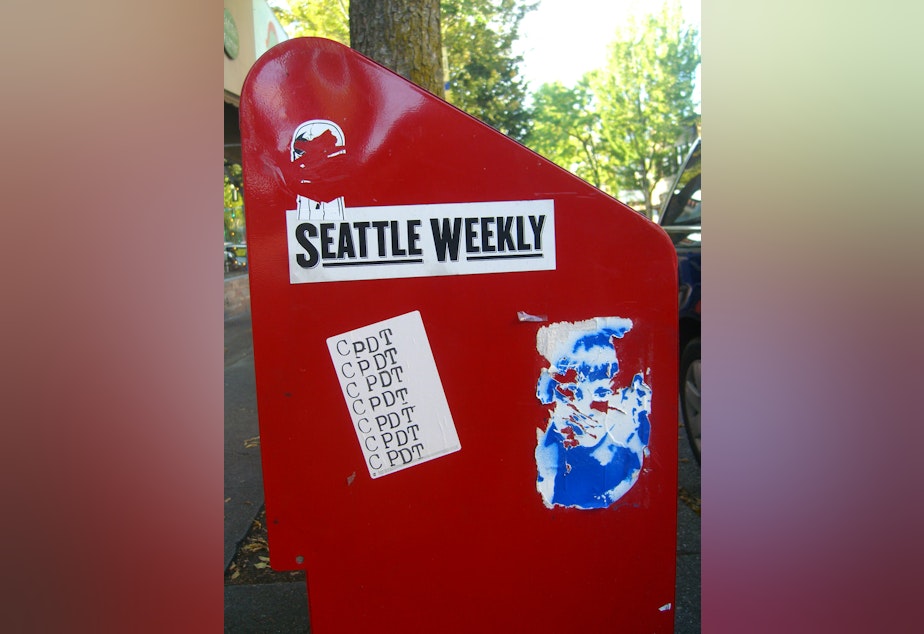Knute Berger reflects on Seattle Weekly's life and death in print

Kim Malcolm talks with Knute Berger about the death of the print edition of the Seattle Weekly.
The Seattle Weekly will publish its final print edition on Wednesday. Moving forward, the publication will be online only. Berger writes for Crosscut, and is the former editor-in-chief of the Seattle Weekly.
Listen to the interview by clicking the play button above.

Interview highlights have been lightly edited for length and clarity.
What crossed your mind when you heard the paper was putting out its last print edition?
It was sort of like a hearing about a very good friend who has passed away in hospice. In other words, it wasn't entirely a surprise. The publication hasn't been healthy for a while. I was reminiscing that back in the late '90s, early 2000s, we produced some issues that were upwards of 200 pages. Last week's Weekly was 12 with very little advertising. It’s been on a sinking course for some time.
At the height of the paper, how important was it to the landscape of journalism here in Seattle?
It was a big factor. It was founded by David Brewster in 1976, and the '70s were an incredibly fertile time here in Seattle. We were in the wake of the Boeing recession, Bumbershoot was started, Starbucks was started, the Pike Place Market was saved.
I think there was a feeling, on the part of a lot of local journalists, that that the media wasn't as sophisticated as the city was becoming in terms of writing for college educated readers. The Weekly sought to be that.
I think David Brewster wanted a paper that held the city to a high standard in the arts, in political coverage, and also in food, interestingly. The Weekly pioneered a lot of reporting and journalism on local food.
So now the Seattle Weekly will only be online. Our other alternative weekly paper, The Stranger, now comes out twice a month in print. As a community, what do we lose when these papers don’t hit the newsstands every week?
What they bring is variety. I don't even think Seattle was well covered by two daily papers and two weeklies. I think there's room for a lot more. We're a big city, we're bigger now than we were when the Weekly was founded. There is a lot to report, there's a lot to analyze and there's a lot to dig into — and not just investigative stories, but compelling narrative stories that open up worlds. More is better.
Journalism in Seattle has taken some pretty big hits in recent years. What do you think about the future of journalism here in the Pacific Northwest?
A couple of years ago, I was talking with Tim Keck at the The Stranger. We were exchanging some ideas and the thing that really struck me is that if you're in the media business now, every media company — no matter how old it is — is in a startup mode. You have to be reinventing yourself constantly. There's no formula that stays in the same place. I think for a while, alternative papers felt like they had a formula and they could stick to it and then bang! Craigslist came along, and your classifieds disappeared. Some other phenomenon changed things radically.
Somebody asked me what I missed about journalism and publishing in the old days. What I said was that I missed a formula, something reliable. You knew if you did X, Y, and Z you would have a successful publication. Now, that's just not true.
Produced for the web by Brie Ripley





